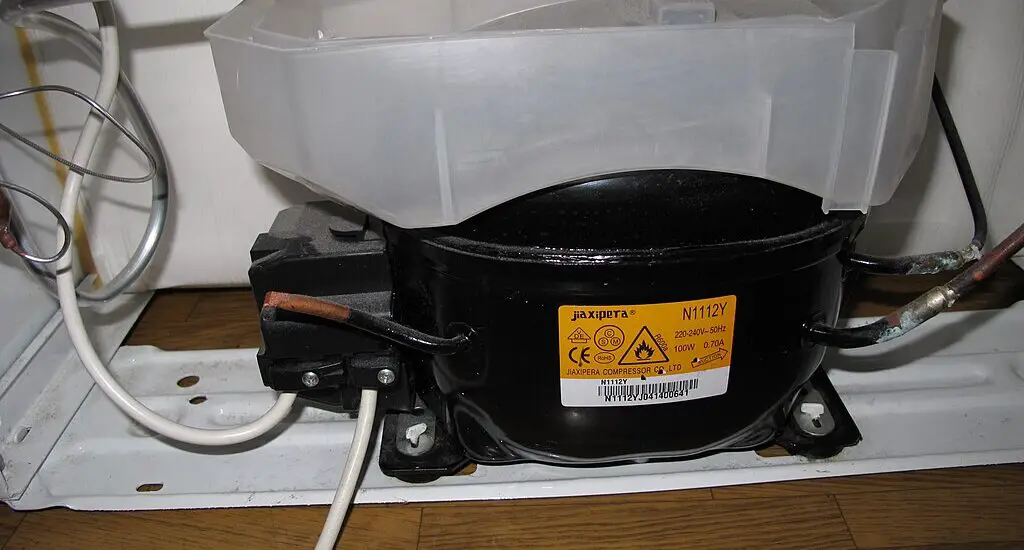If you’re asking the question, “Do refrigerator compressors run all the time?”, you’ve come to the right place. This comprehensive guide will walk you through how refrigerator compressors function, what factors affect their running time, and when you should seek professional help.

Do Refrigerator Compressors Run All the Time? The Answer
The straightforward answer to whether refrigerator compressors run all the time is: No, they do not. Here’s why:
A refrigerator compressor’s primary function is to maintain a stable temperature within the fridge and freezer compartments. To do this efficiently, it follows a cycle governed by a thermostat. The thermostat continuously measures the interior temperature of the refrigerator.
When it detects that the temperature has risen above the pre-set level, it signals the compressor to activate. The compressor then compresses the refrigerant and circulates it through the condenser and evaporator coils, extracting heat from the interior and releasing it outside the appliance. Once the desired temperature is reached, the thermostat signals the compressor to turn off.
This on-and-off cycling is normal and allows the refrigerator to work efficiently without wasting energy. If your compressor is running continuously, it may be a sign that there’s something wrong, such as a malfunctioning thermostat or a refrigerant leak.
Factors Affecting Compressor Run Time
The duration for which a compressor runs is affected by several factors. Each of these plays a crucial role in determining how hard and how often your refrigerator has to work:
Room Temperature: A refrigerator placed in a hot environment will have to work harder to keep its interior cool. Therefore, if you’ve placed your fridge in a warm location, you’ll notice the compressor running more frequently.
Refrigerator Settings: The temperature settings you select for your fridge and freezer also play a role. The colder you want the interior to be, the longer the compressor will have to run to achieve that temperature. Adjusting these settings to a less cold but still safe level can decrease compressor run time.
Frequency of Door Opening: Every time you open the refrigerator or freezer door, warm air from the room enters the appliance. This causes the compressor to turn on more frequently to remove the infiltrated warm air and maintain the internal temperature.
Age and Efficiency of the Appliance: Older refrigerators tend to be less efficient than newer models. An aging compressor or outdated insulation can make the appliance work harder, leading to longer compressor run times.
Check out these other articles…
Can a Refrigerator Compressor Explode? What Experts Say
Can a Refrigerator Compressor Catch Fire? Detailed Answer
Can a Refrigerator Compressor Be Recharged? Quick Answer
Do Refrigerator Compressors Get Hot? Comprehensive Answer
Can I Replace a Refrigerator Compressor Myself? Quick Answer
What Makes a Refrigerator Compressor Go Bad? 3 Major Factors
Do Refrigerator Compressors Have Capacitors? Detailed Answer
What Happens if the Compressor Runs Non-Stop?
If you find that your refrigerator’s compressor is running without ever cycling off, it’s a concern that should be addressed promptly. Continuous operation can lead to:
Increased Energy Bills: A compressor that runs all the time will consume significantly more electricity. Over time, this will become apparent when your energy bills spike.
Shortened Appliance Lifespan: Any machine that is run continuously without breaks is bound to wear out faster. Your refrigerator is no exception. If the compressor and other vital parts are overworked, you may find yourself facing expensive repairs or needing a replacement much sooner than expected.
Potential Food Spoilage: You might think that a continuously running compressor will make your fridge colder, but that’s not necessarily true. If the compressor is running non-stop because of a malfunction, it may not be cooling effectively. This could result in food spoilage due to inconsistent or inadequate cooling.